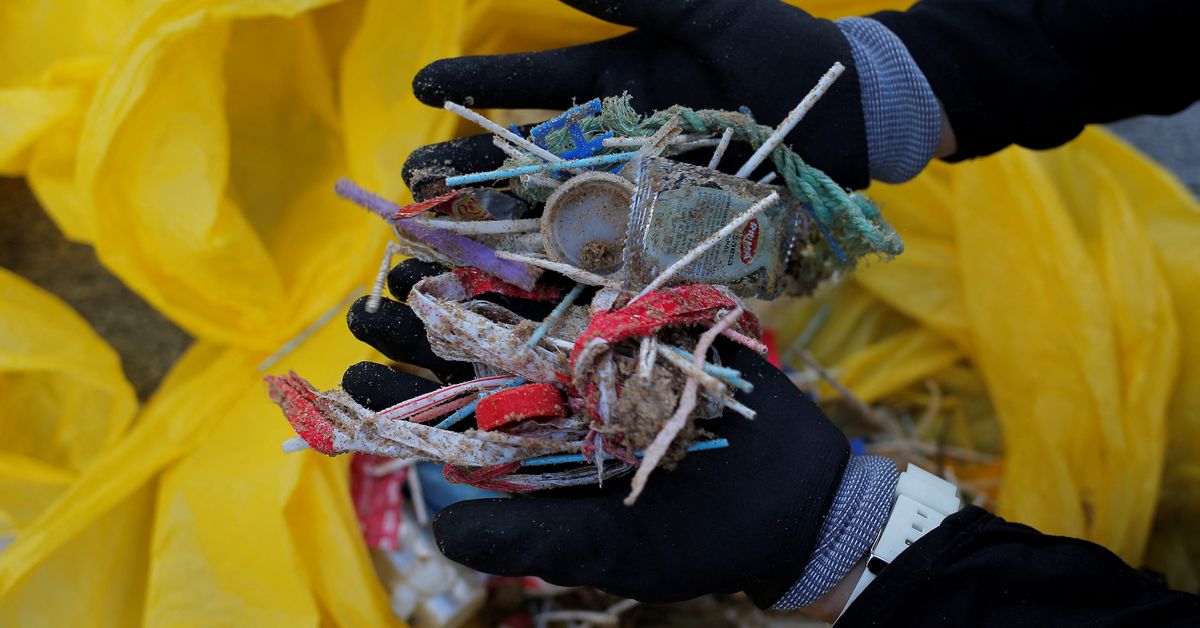
A volunteer shows ear sticks and plastics after a garbage collection, ahead of World Environment Day on La Costilla Beach, on the coast of the Atlantic Ocean in Rota, Spain June 2, 2018. REUTERS/Jon Nazca
Register now for FREE unlimited access to Reuters.com
Register
BRUSSELS, Feb 1 (Reuters) – Progressive reduction of fossil fuel-based plastics is crucial to tackling climate change, the EU’s top environmental official said, ahead of a United Nations meeting to launch talks on a world-first treaty to combat plastic pollution.
Plastics production is becoming a key growth area for the oil industry as countries seek to shift away from polluting energy sources, but plastic waste is piling up in the world’s oceans and urban waterways and choking its wildlife. read more
Last month, a study of ice cores revealed traces of nanoplastics in both polar regions for the first time.
Register now for FREE unlimited access to Reuters.com
Register
“The biggest topic is, at the end of the day, oil use for plastic production,” said EU Environment Commissioner Virginijus Sinkevicius amid preparations for the U.N. Environment Assembly summit starting in Nairobi on Feb. 28.
“If we want to reach our decarbonisation goals for 2050, clearly we have to decrease steadily the use of fossil fuels, and one of the areas here as well is plastics,” he told Reuters in an interview.
Sinkevicius said restricting virgin plastic production was “inevitably an important part” of a global treaty, but it was not yet clear what binding or voluntary requirements would be agreed.
“I believe in binding measures more, but of course we’ll have to see what our international partners have to say,” he said.
Petrochemicals, the fossil fuel-based building blocks for products including plastics and fertilisers, are expected to account for more than a third of global oil demand growth by 2030, according to the International Energy Agency.
Consumer brands including Coca Cola (KO.N) and PepsiCo (PEP.O) have said the UN pact should include cuts in plastic production, although that could face resistance from oil and chemical firms and major plastic-producing countries like the United States.
Other options for the UN deal could include improving waste collection and recycling, or developing plastics that are easier to reuse – although Sinkevicius said recycling alone could not rein in the plastic pollution crisis.
“There’s no way that with this increased waste pile-up, that we will recycle our way out of it,” he said.
The 27-country EU banned single-use plastic items such as cutlery and straws n 2021. France went further this year, banning plastic packaging for nearly all fruit and vegetables.
(This story refiles to remove superfluous word ‘as’ from second paragraph)
Register now for FREE unlimited access to Reuters.com
Register
Reporting by Kate Abnett; additional reporting by Valerie Volcovici; editing by Philip Blenkinsop and John Stonestreet
Our Standards: The Thomson Reuters Trust Principles.
